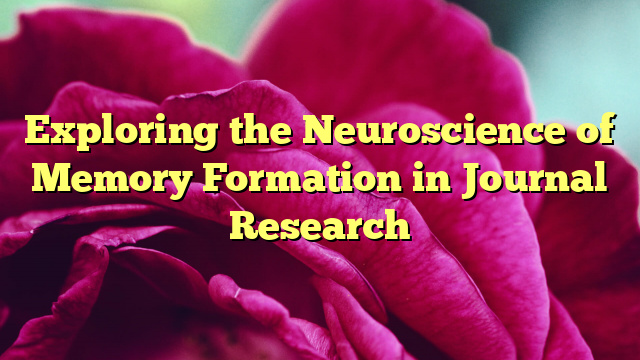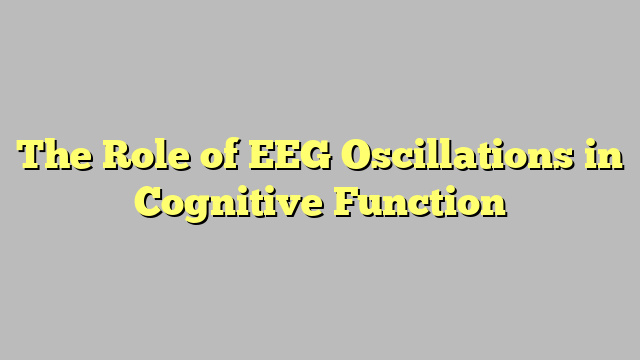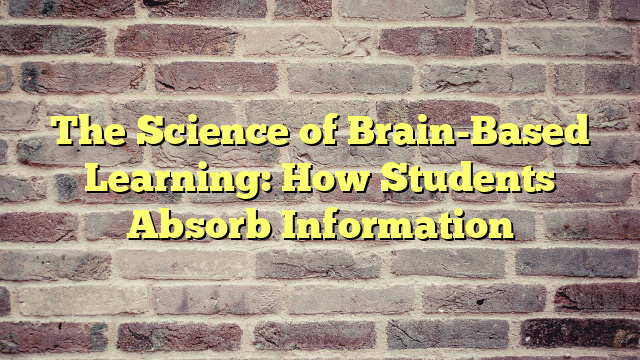Memory formation is a complex process that involves various regions of the brain working together to encode, store, and retrieve information. Neuroscientists have made significant advancements in understanding how memories are formed and consolidated in the brain through research published in reputable journals. In this article, we will delve into the latest findings in the field of neuroscience regarding memory formation.
Memory Encoding and Consolidation
Memory formation begins with the process of encoding, where sensory information is transformed into a neural representation that can be stored in the brain. This involves the activation of specific brain regions, such as the hippocampus and prefrontal cortex, which play crucial roles in memory formation. Studies using neuroimaging techniques, such as fMRI and EEG, have provided insights into the neural mechanisms underlying memory encoding.
Once information is encoded, it needs to be consolidated into long-term memory to prevent decay and ensure its retention over time. This process involves the strengthening of synaptic connections between neurons through mechanisms like long-term potentiation (LTP) and gene expression. Journal research has highlighted the importance of protein synthesis and epigenetic modifications in memory consolidation.
Neural Circuits and Plasticity
Memory formation relies on the activation of specific neural circuits that connect different brain regions involved in processing and storing information. These circuits exhibit plasticity, meaning they can adapt and reorganize in response to learning and experience. Research on neural plasticity has shed light on how memories are stored and retrieved in the brain.
Studies have shown that the hippocampus is critical for the formation of episodic memories, while the amygdala is involved in emotional memory processing. Neuroscientists have also identified the role of the prefrontal cortex in working memory and executive functions, which are essential for cognitive processes like planning and decision-making.
Memory Retrieval and Forgetting
Memory retrieval is the process of accessing stored information from long-term memory and bringing it into conscious awareness. This process relies on the activation of neural pathways that were initially formed during encoding and consolidation. Studies have demonstrated that retrieval cues, such as context and emotion, can influence the ease and accuracy of memory recall.
Despite the brain's remarkable capacity to store vast amounts of information, memories are not always retrieved accurately. Forgetting is a natural part of memory processing, as the brain prioritizes important information and filters out irrelevant details. Research on memory retrieval and forgetting has provided insights into the mechanisms underlying memory errors and false memories.
Conclusion
Exploring the neuroscience of memory formation in journal research has enriched our understanding of how the brain processes and stores information. By investigating the neural mechanisms underlying memory encoding, consolidation, retrieval, and forgetting, neuroscientists have made significant strides towards unraveling the mysteries of memory. Future research in this field holds promise for developing new therapies and interventions for memory-related disorders and cognitive decline.
FAQs
Q: How does stress impact memory formation?
A: Stress can have both positive and negative effects on memory formation. Acute stress can enhance memory consolidation and retrieval through the release of stress hormones like cortisol, while chronic stress can impair memory processes by disrupting neural circuits and synaptic plasticity.
Q: Can memories be permanently erased or erased?
A: While it is currently not possible to selectively erase specific memories, research on memory modification techniques like optogenetics and pharmacological interventions is ongoing. Ethical considerations and potential risks must be carefully weighed before considering memory manipulation interventions.
Unlock Your Mental Potential



